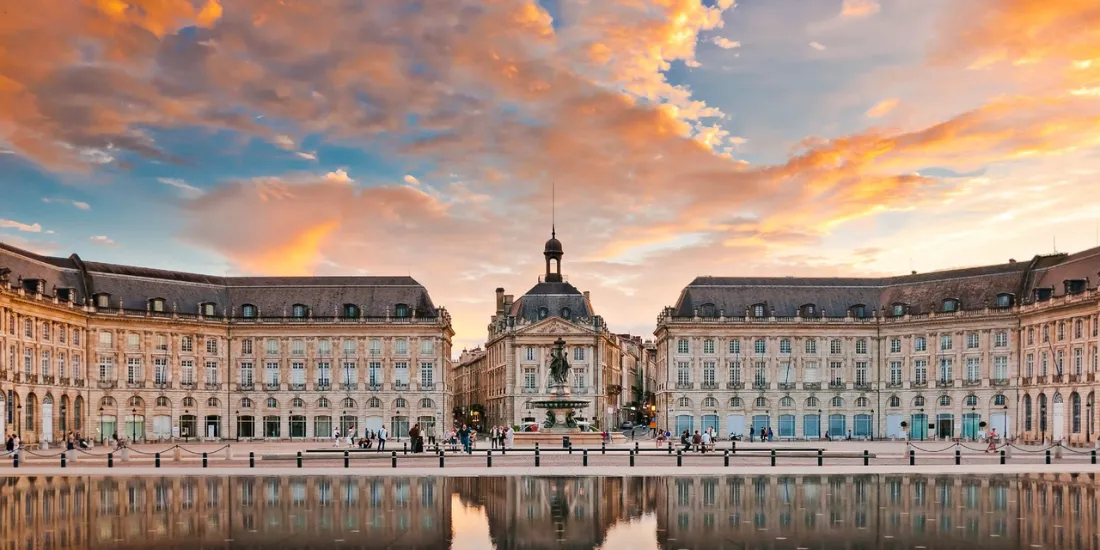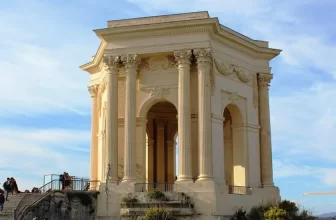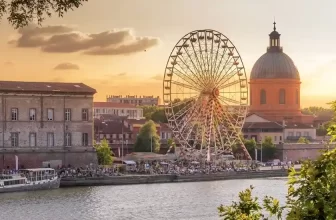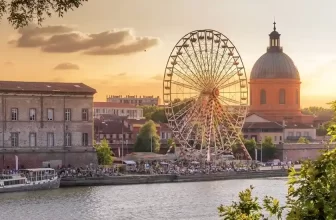
Stepping into Bordeaux for the First Time
The first thing that hits you when you walk out of Bordeaux–Mérignac Airport isn’t the architecture or even the language-it’s this smell. That earthy, vine-heavy scent that tells you you’re in wine country, even if you’ve never smelled a vineyard before. It’s subtle, almost baked into the air with a warm breeze that smells like fresh bread and sunshine bouncing off the Garonne River.
I landed in Bordeaux in early September. It was sunny but not hot, around 24°C, with no clouds and just enough chill in the air to feel new. I stood there with my overpacked suitcase, slightly sweaty from the flight, slightly awkward in my French, and completely overwhelmed. A guy on a scooter zipped past blasting some French rap. Pigeons scuffled around the tram station. And yeah-I was nervous.
My first proper meal in the city? A €6 sandwich from this boulangerie tucked behind Hôtel de Ville. The woman behind the counter corrected my pronunciation (“Jambon beurre, pas ‘jam-BOHN!’”) with this smile that said, “You’ll get it eventually.”
If you’re considering studying in Bordeaux in 2026, this guide’s for you. Not the polished, brochure version. The fully human, sometimes messy, totally real version of what studying abroad in Bordeaux is actually like.
Why Study in Bordeaux in 2026?
Let’s be honest-Paris gets most of the press. But Bordeaux? It’s been quietly becoming one of France’s top student cities for years now, and in 2026, it’s hitting all the right notes.
Some context: Over 130,000 students live in Bordeaux, and international students make up around 10–15%. The vibe is academic but laid-back. It’s where people actually live and learn, not just pose in front of landmarks.
A few 2026-specific reasons people are choosing Bordeaux:
- Tech & sustainable industries are booming thanks to Bordeaux’s startup scene and its Green Capital award streak.
- Visa policy updates in 2024 made it easier for international grads to stay and work in France after graduation.
- The number of English-taught international degree programs in Bordeaux doubled between 2020 and 2025.
- Tuition is still reasonable thanks to France’s socialized education system (more on that soon).
Beyond the numbers, there’s something about Bordeaux’s pace. It’s slower than Paris, cheaper than Lyon, sunnier than Lille. And-unlike some other cities-it’s friendly in a real way. Like people actually say bonjour and mean it.
2026 is the year Bordeaux hits the sweet spot: affordable, ambitious, globally connected, and still chill enough to enjoy the ride.
Why International Students Love Bordeaux
Here’s the thing. Bordeaux doesn’t just welcome international students-it’s kind of built for them.
My South Korean housemate during my first year summed it up best:
“Paris is for tourists. Bordeaux is for living.”
Some real reasons international students choose Bordeaux:
- Excellent public universities ranked across Europe (and not just for wine studies, although that’s a thing)
- Easy access to student housing via CROUS and private agencies
- Genuinely supportive services: Orientation week, French classes for beginners, housing help
- Safe city with good healthcare access and low crime rates
- Daily life isn’t crazy expensive (unlike, say, London or Amsterdam)
Also-this matters-people are used to hearing accents here. You won’t be the only one asking for directions in slow French.
Top Universities and Colleges in Bordeaux
This part’s critical-especially if you’re choosing based on program, student life, or reputation.
University of Bordeaux (Université de Bordeaux)
- Rank: Top 300 globally, QS 2025
- Known for: Life sciences, medicine, AI research, physics
- Tuition: ~€2,770/year (Bachelor’s), ~€3,770/year (Master’s) for non-EU students
- Campus vibe: Huge, multi-campus. Talence campus feels like a student town. Modern science buildings, big green spaces.
- Student experience: Diverse; lots of joint research programs. English-taught master’s in neuroscience and computer science are highly rated.
KEDGE Business School
- Rank: Top 10 in France for business (Financial Times)
- Specialties: Marketing, Supply Chain, Wine & Spirits Management
- Tuition: €11,000–€14,000/year for international students
- Vibe: Professional, international-heavy, high-pressure but high payoff. They push networking hard.
- Pro tip: Use their corporate network-internships are built into most programs.
Sciences Po Bordeaux
- Known for: Political science, international relations, public affairs
- Tuition: Public tuition structure (~€3,770); scholarships available
- Vibe: Intense, diplomatic. Often described as “brainy social.” English tracks available.
Bordeaux Montaigne University
- Focus: Humanities, arts, languages, literature
- Vibe: Creative, community-oriented. Students roam the arts campus with sketchbooks, film gear, poetry books.
- Tuition: Around €2,770/year for international Bachelor’s
- Bonus: Great Erasmus+ exchange partnerships
Institut Polytechnique de Bordeaux (Bordeaux INP)
- Fields: Engineering, data science, environmental technologies
- Tuition: Around €3,770/year
- Atmosphere: Tech-heavy, a bit more structured, lots of EU research networks
Top Student Accommodation in Bordeaux
Your room might not have Eiffel Tower views. But it should be clean, safe, well-located, and not make you cry when rent’s due.
CROUS Residences
- Cost: €250–€450/month
- Type: Public student housing, basic but functional
- Good for: Tight budgets, student vibes
- Be aware: Shared facilities, high demand = apply early
UXCO Student Residences
- Cost: €550–€700/month
- Bonus: Gym, study lounges, furnished rooms
- Locations: Near University Bordeaux campuses in Talence or Gradignan
Private Flatshares (Colocations)
- Cost: ~€400–€550/month
- Platforms: Appartager, LocService, LeBonCoin (old-school but solid)
- Vibe: Get matched with French or Erasmus roommates. Share everything. Fridge drama is real.
Studios or Airbnb-style Private Rentals
- Cost: €650–€850/month
- Tip: Ideal for postgrads or students who prefer downtime after classes
Best Neighborhoods to Live in as a Student
Where you live shapes your whole study experience. Here’s your local cheat sheet.
Saint Michel
- Rent Range: €450–€600 for shared, €800+ for studio
- Vibe: Young, musical, artsy, slightly gritty but very real
- Location: Walkable to central unis. Diverse food options. Some noise.
Victoire
- Amenity Heaven: Near tram lines, bars, student haunts
- Vibe: Lively, central, always something happening
- Rent: ~€550–€700
Talence
- Home of the main Uni Bordeaux campus
- Perfect for: Science, medicine, engineering students
- More chill, green spaces, local markets
Chartrons
- A bit upscale but increasingly student-friendly
- Close to INSEEC, KEDGE satellite campus
- Trendy wine bars, scenic riverside, good cafes for studying
Cost of Living in Bordeaux (Monthly Breakdown)
Here’s a realistic student budget in 2026. Yes, prices creep up every year, but Bordeaux is still cheaper than Paris or London.
| Category | Budget (€) |
| Rent (shared) | 400–600 |
| Rent (studio) | 650–850 |
| Groceries | 150–200 |
| Transport (monthly) | 30 (student pass) |
| Phone/Internet | 30–50 |
| Eating out | 100–150 |
| Health insurance | ~30 (viaSécurité Sociale) |
| Leisure/Misc. | 80–120 |
| Monthly Total | ~€800–€1200 |
Budgeting Tips:
- Do groceries at Lidl, Carrefour, and outdoor markets
- Make baguettes, cheese, and roasted chicken your friends
- Download apps like Too Good To Go for cheap meals
Scholarships and Financial Aid
Let’s be real-tuition in France is already low compared to most English-speaking countries. But hey, “low” doesn’t mean “nothing.”
So, if you’re trying to make studying in Bordeaux more affordable, here’s where to look for scholarships.
French Government Scholarships
The big one: Eiffel Excellence Scholarship Program
- For: Master’s and PhD students
- Covers: Monthly allowance (€1,181+), travel, insurance, and sometimes full tuition
- Competitive? Yes. But not impossible.
- Apply via: Campus France website
Also: Charpak Scholarship (for Indian students) and other bilateral schemes that vary by country.
University-Specific Aid
- Université de Bordeaux “Welcome Grants” – Up to €5,000 for new international master’s students
- KEDGE Business School Scholarships – Merit-based, diversity-focused, and need-based (€2,000 to 50% off tuition)
- Sciences Po Bordeaux Fee Adjustments – Based on your country of origin and income
Other Financial Aid Options
- Erasmus+ – If your home university has an exchange agreement with Bordeaux schools
- Regional Aid (Nouvelle-Aquitaine) – Occasionally offers mobility grants for students enrolled locally
- Ask your uni about Partnership Country Mobility Aid (Aide à la mobilité)
Application Tips:
- Apply early-we’re talking January or February 2026 for most deadlines
- Tailor that personal statement-mention the program, professors, even why Bordeaux
- Don’t be shy about financial need. France isn’t big on bravado
How to Apply – Step-by-Step Guide
Let me break this down without the bureaucratic haze. Because, yes-it can get a bit complex if you don’t map out the steps.
Step 1: Research & Shortlist (Oct–Dec 2025)
- Find courses via campusfrance.org
- Check if your program is on “Etudes en France” (big deal if you’re applying through Campus France)
Step 2: Prepare Documents (Dec–Jan)
Checklist:
- Valid Passport
- Academic transcripts (translated into French or English officially)
- Proof of language proficiency (DELF for French-taught / IELTS or TOEFL for English-taught)
- Personal Statement
- Letters of Recommendation (2 minimum)
Step 3: Submit Applications (Jan–Feb)
- Direct to universities OR through “Etudes en France” depending on your country
- Public university deadlines: January–mid-February for most
- Private schools like KEDGE: Rolling, but apply by March for scholarship chances
Step 4: Interviews / Decisions (Feb–April)
Some programs might ask for online interviews-especially master’s and business school tracks.
Step 5: Accept & Start Visa Process (May–June)
- Pay deposit (if needed), get your enrollment letter
- Start collecting documents for visa
- Book Campus France / consulate appointment EARLY
Visa and Work Rules for 2026
Here comes the part everyone dreads. But don’t panic-if your paperwork’s in order, it’s all manageable.
Student Visa (VLS-TS)
The long-stay student visa is good for over 90 days and doubles as your residence permit.
What you need:
- Proof of admission
- Financial proof (~€615/month minimum, though more is better)
- Proof of housing
- Passport
- Health insurance
- Application fee: ~€99
Apply via Campus France portal first (if applicable), then your local consulate.
Processing Time: 2–5 weeks (longer during summer).
Can you work? Yes.
- 20 hours/week during term
- Full-time during official breaks
- All under your visa-no extra permit needed
After graduation:
- Apply for a Job Search visa extension (APS), valid for 12 months
- If you land a job with a contract, apply to convert your visa (Talent Passport, etc.)
Common mistakes? Not having a permanent French address for visa forms (use your temporary housing address if needed!) and forgetting to activate the OFII process after arriving. Yes, they still use some paper forms.
Local Transport in Bordeaux
Let’s talk trams, trains, and tired feet.
Main Systems:
- TBM (Transports Bordeaux Métropole) runs trams (A-D), buses, and ferry
- You’ll use the TBM student pass: €30/month (unlimited rides)
Bikes:
- V³ (V’cub) – Rentable bikes stationed everywhere. First 30 mins free
- Bordeaux is flat and bike-friendly-get one if you live in Talence or Pessac
Essential Apps:
- TBM app (for tram times)
- Bonjour RATP (broader transport planner)
- CityMapper works okay in bigger zones
Late night? Bordeaux’s night buses (Les Flexo) run till 1AM on weekends. After that… you’re walking or shelling out for an Uber.
Student Life, Food, and Everyday Culture
Okay, here comes the good stuff.
Let me walk you through a week in the life-because this part doesn’t get enough attention.
Typical Week:
- Classes Mon–Thurs (Fridays are often half-days)
- Study sessions at BU (Bibliothèque Universitaire)
- Meetups with international societies or student clubs
- Weekly outdoor cinema or swing nights by the Garonne
- Grocery trip to Marché des Capucins Saturday morning
- Museum Sunday with a baguette and park nap combo
Food Culture:
- Yes, wine is cheap. But casual drinking culture (vs. bars every night)
- Classmates doing picnic-style dinners by the river, charcuterie and all
- Student eats: Chez Jean-Mi for €4 falafel wraps / CROUS cafeteria €3.30 meals
- Best study café? Books & Coffee Bordeaux-quiet upstairs, chaos downstairs
Cultural curveballs:
- French academic styles are more formal. Fewer class discussions.
- Actual “group work” = mostly you doing the work.
- But people are chill-no pressure fashion, just well-put-together casual.
Internship & Career Opportunities in Bordeaux
This city isn’t just pretty to look at-it’s picking up steam career-wise too.
Major growth sectors:
- Wine, Spirits & Agribusiness
- Sustainable development & green tech
- Aerospace & defence (Airbus / Thales nearby)
- Data science, AI, and digital engineering
Internships:
- Most master’s programs REQUIRE one
- Internships are legal and encouraged: Register through school or directly
Where to hunt:
- University portals
- LinkedIn / Welcome to the Jungle / JobTeaser
- On-campus job fairs (Universite de Bordeaux has a whole week for it)
Some companies that hire internationals post-study: Thales, Dassault Aviation, Château Margaux, Ubisoft Bordeaux
Short-Term Study Abroad: Worth It?
Even if you only want a short-term taste of France, Bordeaux delivers.
Short Courses:
- Summer language schools: ~€1,500–€2,300 for 3–6 weeks
- KEDGE wine summer school: mix of study + vineyard visits
- English and French instruction both offered
Good for students who:
- Have limited time
- Want to test the waters before a master’s
- Are language learners needing immersion
Apply through uni sites or Campus France. Start early-spots vanish.
Timeline for 2026 Intake
Quick month-by-month to keep you on track.
| Month | Action |
| Oct 2025 | Shortlist programs, make contact |
| Nov–Dec 2025 | Language test prep (IELTS, DELF) |
| Jan 2026 | Start application + gather docs |
| Feb 2026 | Application deadlines (public uni) |
| March | Apply for scholarships |
| April | Interview time |
| May 2026 | Accept offers |
| June | Visa process begins |
| July | Book housing |
| Aug | Pack, organize health insurance |
| Sept | Orientation week begins! |
Public vs. Private Universities: What’s Better?
| Factor | Public Uni | Private (e.g. KEDGE) |
| Cost | €2,770–€3,770/year | €9,000–€15,000/year |
| Language | Mostly French, some English | English-heavy |
| Class Size | Larger (~80–200) | Smaller (~20–40) |
| Job Focus | Grad school or research | Industry-ready |
| Lifestyle Feel | Academic, calmer | Fast-paced, businesslike |
| Financial Aid | State + regional grants | Private scholarships |
Final Thoughts – Why Bordeaux is Worth It
Bordeaux won’t blow you away the moment you arrive. It’ll sneak up on you.
One day it’s just your tram stop. Next day, it’s your café. A month in, the lady at the boulangerie knows your order. Two months in, you’re helping a lost tourist in French, and you don’t even realize you’re doing it.
It’s perfect if you:
- Want the beauty of France without the burnout of Paris
- Care about culture, academics, and free afternoons by the river
- Plan to work in tech, wine, politics, or digital science
Not ideal if:
- You need 100% English everything (some admin and classes are still French-only)
- You want fast-paced city life with big nightlife
My first-year tips?
- Learn functional French, even if your course is in English
- Join at least one French student club-it’s how you’ll make friends
- Don’t overspend in your first 2 months-you’ll regret it during holidays
- Ask locals for help. They want to help.
- Say bonjour EVERYWHERE.
FAQs – Study in Bordeaux 2026
Not really. Expect €800–€1200/month depending on housing choices.
Yes-20 hrs/week. Internships also common and legal.
Not always for your program, but yes for life. Learn some-it’ll change everything.
Yes. Day or night, central zones are safe. Watch your things near tram lines
Yes. Job search visa extensions are available for 12 months.
Yes – both through schools and via Campus France. Apply early.
October 2025. Earlier = better odds at housing and aid.
You made it. So… ready to study in Bordeaux?
Because now you’re not just informed-you’re prepared, excited, and fully capable of doing this. You’ve got the roadmap, the real talk, and even the shortcuts. Pack smart, ask questions, stay curious-and enjoy the ride.
Bienvenue en France.






